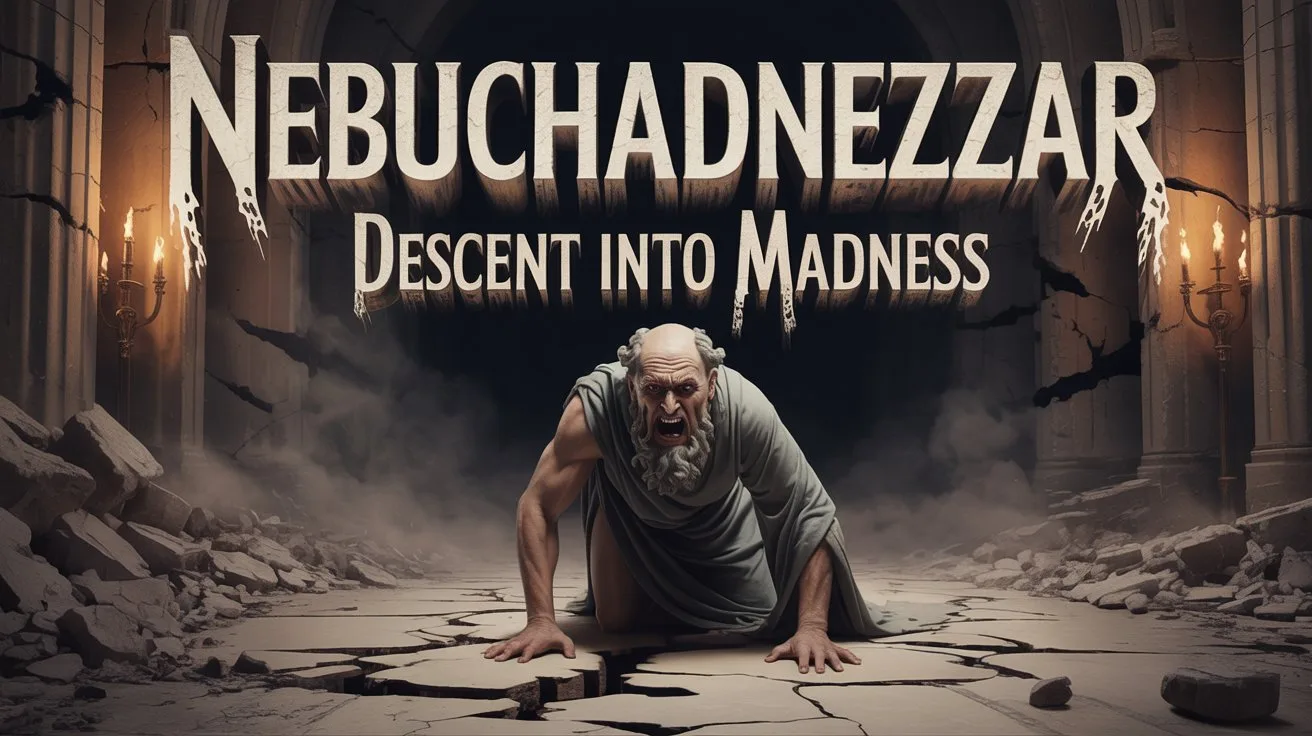God is not mocked by human pride, and no ruler stands outside His authority. Nebuchadnezzar’s madness is one of the clearest biblical examples of God humbling the high and exalting the low. His journey from prideful king to beastly madness, and finally to restored worshipper, teaches us of God’s patience, judgement and providence.
The Warning and the Dream
Nebuchadnezzar had already encountered the power of God through Daniel’s earlier interpretations and the fiery furnace miracle. Yet pride still lingered in his heart. God gave him a dream: a towering tree visible to all, filled with fruit, sheltering animals. But the tree was cut down, its branches stripped, its fruit scattered. Daniel interpreted the dream, declaring it was about the king himself.
“You shall be driven from men, and your dwelling shall be with the beasts of the field… till you know that the Most High rules in the kingdom of men, and gives it to whomever He chooses.” (Daniel 4:25)
Daniel pleaded with him to repent. He said, “Break off your sins by being righteous, and your iniquities by showing mercy to the poor” (Daniel 4:27). But pride would not yield. For twelve months, God was patient. Then came the breaking.
The Fall Into Madness
As Nebuchadnezzar walked in his palace, surveying Babylon’s splendor, he said in his heart, “Is not this great Babylon, that I have built… by my mighty power and for the honor of my majesty?” (Daniel 4:30). The words were still in his mouth when judgment fell.
“A voice fell from heaven: ‘King Nebuchadnezzar, to you it is spoken: the kingdom has departed from you!’” (Daniel 4:31)
His mind fractured. He was driven from men, eating grass like oxen. His hair grew long like eagle feathers. His nails like bird claws. He lived exposed to the dew of heaven. This wasn’t symbolic. It was divine discipline in bodily, mental, and spiritual form. For “seven times,” interpreted as seven years, he lived like a beast (cut off from reason, royalty, and human interaction).
The Restoration of Reason
But God is not only just; He is merciful. At the end of the appointed time, something shifted. Nebuchadnezzar lifted his eyes toward heaven. That simple act marked repentance. His understanding returned. And instead of glorifying himself, he gave glory to the Most High.
“At the end of the time I, Nebuchadnezzar, lifted my eyes to heaven, and my understanding returned to me; and I blessed the Most High and praised and honored Him who lives forever.” (Daniel 4:34)
His confession is rich with theology. He exalts God’s everlasting dominion. He acknowledges that all the inhabitants of the earth are reputed as nothing. He declares that no one can restrain God’s hand or say to Him, “What have You done?” (Daniel 4:35).
Then, as suddenly as he had fallen, God restored his kingdom. His counselors returned. His honor and splendor were restored, even increased. And he testified, not as a tyrant but as a humbled man.
“Now I, Nebuchadnezzar, praise and extol and honor the King of heaven, all of whose works are truth, and His ways justice. And those who walk in pride He is able to put down.” (Daniel 4:37)
My Final Thoughts
Nebuchadnezzar’s madness was not just punishment; it was mercy. God gave him a chance to see the truth, to come to the end of himself, and to glorify the One who truly reigns. His journey mirrors our own when we exalt ourselves and forget who truly sits on the throne.
Pride blinds us to reality. But God is able to humble. He is able to restore. And He is worthy of all honor. May we not wait for madness to learn what humility would teach us now: that the Most High rules, and His dominion is forever.












